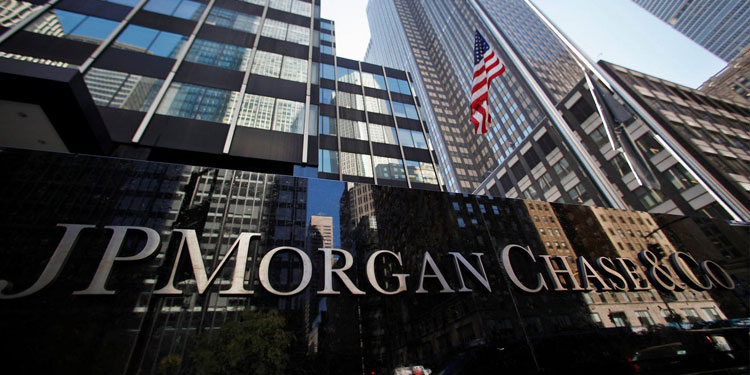
JPM Coin’s Role in Wholesale Transactions:
JPM Coin serves as a pivotal tool for J.P. Morgan’s wholesale clients, enabling them to facilitate dollar and euro payments over a private blockchain network. While the $1 billion daily transaction volume is a substantial accomplishment, it is essential to note that this figure is relatively modest when compared to the vast $10 trillion in daily U.S. dollar transactions traversing in and out of J.P. Morgan’s network. Nevertheless, JPM Coin’s contribution to streamlining digital payments is undeniable.
Exploring Blockchain-Based Innovations:
In addition to JPM Coin, J.P. Morgan has actively embraced blockchain technology in other areas of its operations. The bank has introduced a blockchain-based repo application, demonstrating its commitment to leveraging distributed ledger technology for enhanced efficiency in financial services. Furthermore, J.P. Morgan is contemplating the introduction of a digital deposit token designed to expedite cross-border settlements. Georgakopoulos hinted at the bank’s aspiration to develop a retail-oriented version of this token to extend the benefits of efficiency to consumers.
Pioneering the Digital Token Revolution:
J.P. Morgan’s foray into the world of digital tokens began in 2019, marking it as the first major U.S. bank to introduce its proprietary digital token for practical use. The introduction of JPM Coin was driven by the desire to enable instantaneous payments between institutional accounts, underlining the bank’s dedication to embracing digital innovations in traditional finance.
Tokenization as a Game-Changer:
Earlier this year, J.P. Morgan reaffirmed its commitment to tokenizing traditional finance. The bank reported that it had processed close to $700 billion in short-term loan transactions through Onyx, a permissioned version of the Ethereum blockchain. Tyrone Lobban, the head of the Onyx program, emphasized the transformative potential of tokenization in traditional finance. He stated, “We think that tokenization is a killer app for traditional finance. If you think about private markets — private credit, private equity, and private real estate — they are pretty much double the size of public markets, but many orders of magnitude less liquid, so there’s this huge disparity.”
Blockchain’s Growing Influence:
The financial industry’s embrace of blockchain technology is becoming increasingly apparent as more traditional players recognize its potential. Jorn Lambert, Chief Digital Officer of Mastercard, highlighted the untapped value of blockchain. He stated, “The true intrinsic value of blockchain, which is around programmability of transactions, immutability of transactions, and the ability to do delivery versus payment and always-on types of payments, has yet to be unlocked.” Additionally, Daniel Field, the Global Head of Blockchain at UST, pointed out the ongoing global trend of exploring the benefits and complexities of leveraging distributed ledger technology for the financial system.
Conclusion:
J.P. Morgan’s success in handling $1 billion in daily transactions through its digital token, JPM Coin, is a testament to the bank’s commitment to innovation and efficiency in the financial sector. As blockchain technology continues to gain prominence, traditional financial institutions are actively exploring its potential to streamline operations, enhance security, and create new opportunities in both institutional and retail financial services. The journey towards unlocking the full potential of blockchain and tokenization in traditional finance is well underway, promising a future of enhanced financial services for consumers and businesses alike.
